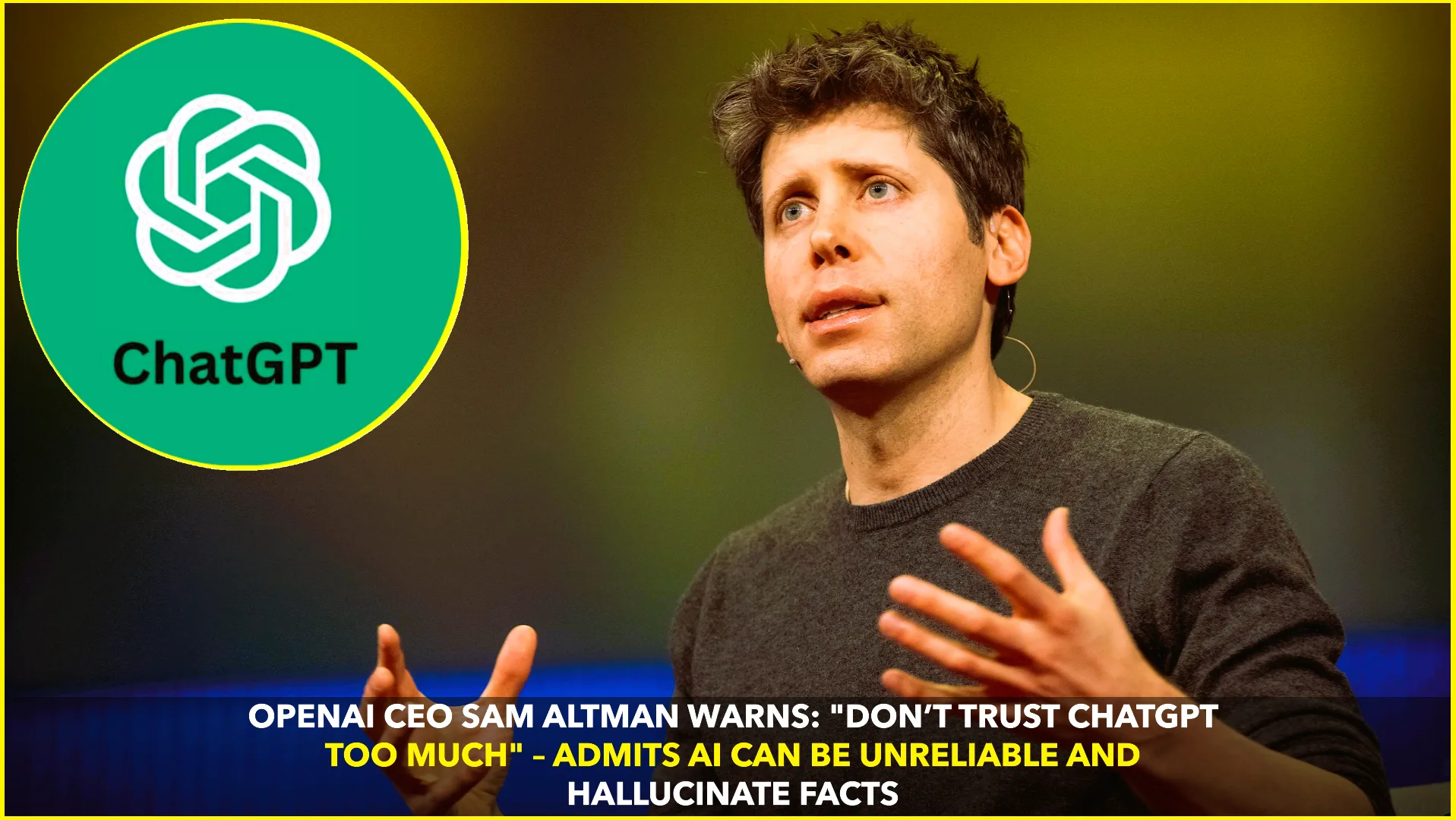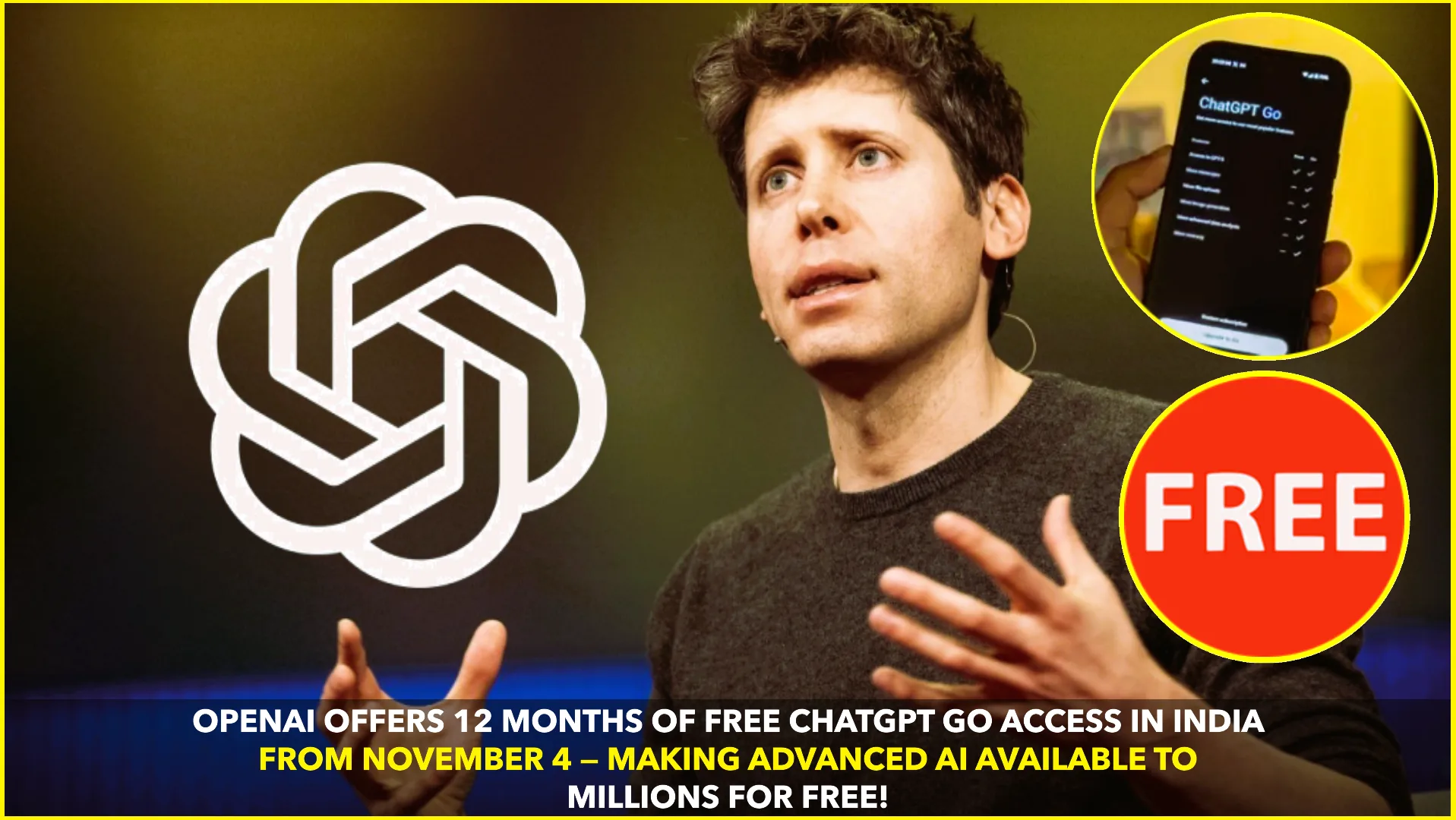In a rare and candid admission, OpenAI CEO Sam Altman has publicly cautioned users about the limitations of ChatGPT, acknowledging that the AI chatbot can sometimes generate incorrect or misleading information — a known issue in artificial intelligence called “hallucination.”
Speaking at a recent public forum, Altman emphasized the need for human oversight when using AI tools like ChatGPT. “These systems are very powerful, and they can be incredibly helpful, but they are not perfect. ChatGPT, like other large language models, can and does make mistakes,” he said. “You should not trust it too much, especially for critical or high-stakes decisions.”
The term “hallucination” in the AI context refers to when a model produces output that appears plausible but is actually fabricated or false. This can range from incorrect historical dates and fictitious quotes to entirely made-up statistics or legal facts.
Altman’s warning serves as a crucial reminder, particularly as AI tools are increasingly being used in education, healthcare, journalism, and business decision-making. “We are working hard to reduce hallucinations, but they are still a real issue,” he added.
The OpenAI CEO’s honest stance aligns with the company’s broader mission of promoting transparency and responsible use of artificial intelligence. While AI technology is progressing rapidly, OpenAI has repeatedly stated that its goal is not to replace human judgment but to augment it.
“This isn’t about fear,” Altman clarified. “It’s about awareness. We don’t want users to take AI responses as gospel truth. These are tools, not oracles.”
His comments arrive at a time when generative AI is under increased scrutiny from regulators, educators, and professionals across industries. In recent months, various AI-generated content — from essays to legal documents — has been found to contain factual errors, prompting renewed calls for clearer AI literacy among users.
Why This Matters:
Altman’s remarks come as AI adoption reaches record highs. According to a McKinsey report published in early 2025, over 60% of enterprises globally are now using some form of generative AI, with ChatGPT being one of the most widely used platforms. The accessibility of AI makes it easy to rely on, but also easy to misuse.
Altman also touched on the improvements being made to mitigate hallucinations. “We’re constantly fine-tuning our models. GPT-4 and beyond are getting better, but no model is 100% accurate. The best safeguard is a well-informed user.”
He urged users to use ChatGPT for brainstorming, research, and creative exploration but not to depend on it for factual reporting, legal advice, or critical medical decisions without expert validation.
The Bigger Picture:
Altman’s statement may seem surprising, but it reflects a growing maturity in the tech industry — a shift toward more ethical and transparent innovation. OpenAI, which once began as a nonprofit, has consistently spoken about the safe development of artificial general intelligence (AGI). This warning is part of a broader educational push to help users better understand AI’s strengths and limitations.
Conclusion:
While ChatGPT and similar AI tools are revolutionary, they are not infallible. Sam Altman’s frank comments highlight the need for caution, critical thinking, and verification in an AI-powered world. As these tools become more embedded in our daily lives, responsible use and human oversight remain more important than ever.
Source:
OpenAI Executive Remarks via OpenAI.com and recent tech forums.










